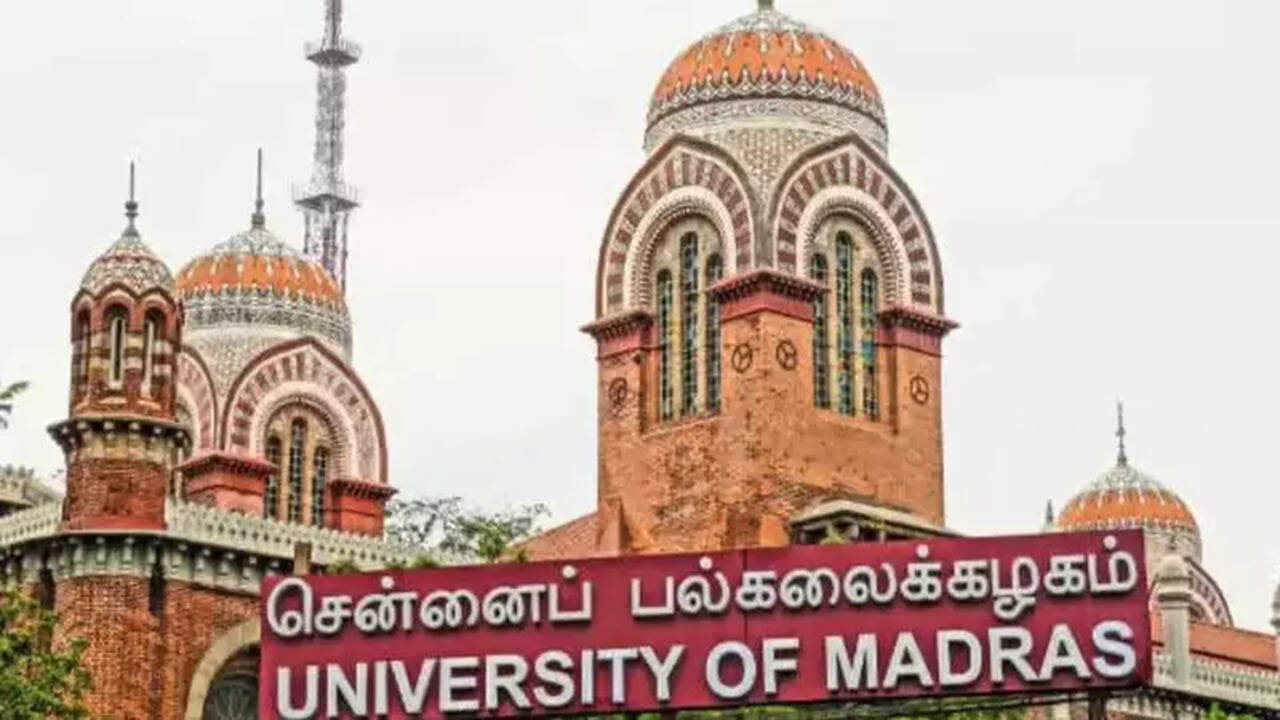Why the move matters for students and higher education
Madras University has stopped admissions to its three popular psychology programmes in distance learning after the University Grants Commission (UGC) withdrew recognition for healthcare and allied courses in open and distance learning mode. The move, effective from the 2025–26 academic year, has left hundreds of students uncertain about their future.
The Institute of Distance Education (IDE) at Madras University had already enrolled around 400 students in BSc Psychology, MSc Psychology, and MSc Counselling Psychology before UGC’s order came into effect in mid-August. University officials confirmed they would write to UGC seeking clarity on the enrolled students. If approval is not reinstated, students will either be offered alternative courses or their fees refunded.
Madras University and the psychology ban
The UGC’s latest directive is based on the recommendations of an expert committee, which reviewed professional courses that require practical training. According to the order, programmes under healthcare and allied sciences, including psychology, microbiology, food and nutrition, biotechnology, and clinical nutrition, cannot be offered through open and distance learning from July 2025.
UGC explained that the decision is aligned with the National Commission for Allied and Healthcare Professions Act, 2021, which clearly mandates in-person training for such disciplines. “No higher educational institution shall be permitted to offer these programmes in distance learning from July-August 2025,” the notice stated.
This means that institutions like Madras University, which had built strong enrolment numbers in psychology through distance mode, must now discontinue them. The IDE’s psychology courses were among the most popular in Tamil Nadu, offering an affordable and flexible option for working professionals and students unable to attend full-time classes.
Mixed response from academicians
The move has sparked mixed reactions within the academic community. Some experts welcomed the UGC’s decision, arguing that psychology, by its nature, requires hands-on training, practical sessions, and supervised practice. They believe face-to-face classroom interaction is vital for students to grasp the nuances of counselling, therapy, and mental health support.
However, others feel the decision is too restrictive and closes doors for many aspirants. With limited seats in regular BSc and MSc psychology programmes, distance education was a lifeline for those who wished to study but could not attend college in person. Critics argue that instead of an outright ban, UGC could have mandated practical workshops or compulsory lab-based contact classes for distance learners.
Former Madras University vice-chancellor P. Duraisamy noted that flexibility is crucial in education today. “Distance mode opened up opportunities for students who otherwise would never have been able to pursue psychology. UGC could consider hybrid models where practical training is made mandatory rather than stopping the courses completely,” he said.
The road ahead for Madras University
For now, the focus of Madras University is on addressing the concerns of the 400 students who had already joined psychology courses for this year. Officials are awaiting UGC’s clarification on whether exceptions can be made for current enrollees. If not, fee refunds or alternative course placements will be arranged.

This sudden change has also raised broader questions about the future of distance education in India. Over the last decade, universities have seen rising demand for psychology and allied health courses in flexible learning formats. The discontinuation of these programmes may push students to private coaching centres or unregulated online platforms, which could dilute the quality of education even further. Also Read: India Proudly Sends 34 Students to Japan for Sakura Science Programme: A New Chapter in Experiential Learning
At the same time, the UGC’s stance reflects a push towards safeguarding professional standards. Psychology graduates are expected to handle sensitive issues like mental health counselling, therapy, and crisis intervention areas where insufficient training could have serious consequences. By insisting on in-person education, regulators aim to maintain credibility and professional competence in healthcare-related fields.
Conclusion
The suspension of distance mode psychology courses at Madras University highlights a growing debate between accessibility and quality in higher education. While the UGC insists on stricter standards, many argue that students lose opportunities for flexible learning. The coming months will be crucial as the university and regulators work toward solutions that balance professional integrity with the aspirations of thousands of learners.

